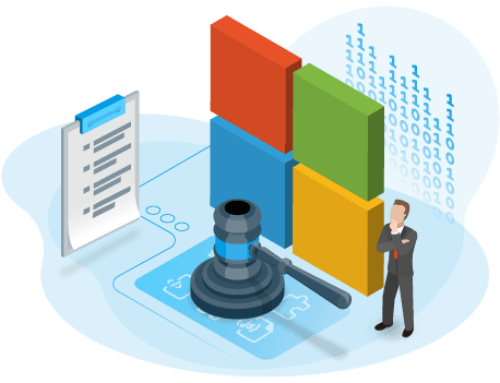by Mat Mendel, Account Executive
I’ve always played with different tools and apps to try and understand their potential to assist me and discover the competitive advantages they offer. And, while I wouldn’t necessarily consider myself an “early adopter,” I’m certainly not afraid of technology and once a tool is accepted by the early majority, I’m all in.
In 2004, when working for myself, I abandoned Excel spreadsheets in favor of an open-source CRM database where I could more efficiently track contacts. I was using Facebook in 2008, Twitter in 2010, and in 2011, I downloaded an early version of TweetDeck to easily manage content and proactively interact with prospects. I abandoned my CRM in 2007, when the non-profit I was working with implemented Salesforce.com. And, in 2014, I dove headfirst into HubSpot, taking advantage of marketing and email automation to maximize productivity.
So, perhaps it’s only natural for me to want to figure out ChatGPT, see if/how I could leverage artificial intelligence in my work, and learn how it can and is benefiting my clients and their law firms.
In my opinion, ChatGPT is an incredible tool. However, as a technology advisor for the legal profession, I would note precautions should be taken.
To illustrate just how brilliant it is, I thought I’d ask the expert itself, ChatGPT, what benefits it can provide to the legal profession and what precautions a lawyer should take when using the app. Being security-centric, I’ll start with precautions first and look at what the system has to offer:
The Risks
When using any AI language model, it is essential to exercise caution and adhere to certain precautions to protect client confidentiality, maintain professional ethics, and ensure the accuracy of legal information. According to ChatGPT, here are some precautions to consider:
- Confidentiality: Avoid sharing any confidential or privileged information about clients or their cases with the AI model. Treat the AI interaction as a public forum and refrain from discussing specific client details.
- General Advice Only: Use AI language models for general information and guidance purposes only. Do not consider the responses as legal advice tailored to specific cases or clients. Verify any legal information obtained from the AI model with reliable sources or consult a qualified legal professional.
- Understand Limitations: Recognize that AI models have limitations and may not fully comprehend nuanced legal concepts or rapidly changing laws. Be cautious when relying solely on AI-generated responses and always exercise professional judgment.
- Client Communications: Avoid using AI language models for client communication. Maintain direct, secure, and confidential communication channels with clients, ensuring that sensitive information always remains protected.
- Review and Edit: Carefully review and edit any output generated by the AI model before using it in legal documents, emails, or other professional materials. Ensure accuracy, clarity, and adherence to legal standards.
- Data Security: Be mindful of data security when interacting with AI models. Protect client information and follow appropriate data protection measures, including using secure platforms and avoiding the storage of sensitive data within the AI system.
- Terms and Conditions: Familiarize yourself with the terms and conditions of the AI platform you are using. Understand the ownership and usage rights of the generated content and ensure compliance with applicable legal and ethical obligations.
- Continuing Legal Education: Stay updated with legal developments and maintain your professional competence through continuing legal education. Regularly engage in training and networking opportunities to enhance your legal knowledge and skills beyond AI assistance.
The Benefits
AI language models and ChatGPT specifically can assist legal professionals. Remembering that the tool is only using information from 2019 and earlier, according to ChatGPT, here are some of the benefits:
- Legal Research Assistance: ChatGPT can be used to provide legal research support to lawyers, legal professionals, or individuals seeking legal information. Users can ask questions about case law, statutes, regulations, or legal concepts, and the system can provide relevant and accurate responses based on its training data. But don’t be this guy.
- Document Analysis and Review: ChatGPT can assist in analyzing and reviewing legal documents such as contracts, agreements, or court filings. It can help identify potential issues, suggest improvements, or offer insights into legal language and implications.
- Legal Q&A and Advice: By integrating ChatGPT into a legal service platform, users can obtain general legal advice or answers to specific legal questions. The system can provide guidance on legal processes, rights, obligations, and potential courses of action.
- Contract Generation and Review: ChatGPT can facilitate the generation and review of contracts by offering suggestions, explanations, and clarifications during the drafting process. It can help ensure that contracts adhere to legal requirements and best practices.
- Compliance and Regulatory Support: ChatGPT can assist businesses in understanding and complying with legal and regulatory frameworks specific to their industry. It can provide guidance on compliance obligations, data protection, intellectual property, and other relevant areas.
- Virtual Legal Assistant: ChatGPT can function as a virtual assistant for legal professionals, helping manage schedules, organize tasks, set reminders, and provide information on upcoming deadlines or court appearances.
- Legal Chatbots: Using ChatGPT as the foundation, chatbot interfaces can be built to automate routine legal interactions and provide 24/7 support to clients. Chatbots can help with client intake, initial consultations, appointment scheduling, and basic legal information.
It’s important to note that while ChatGPT can be a valuable tool in the legal domain, it should not be considered a substitute for professional legal advice. Legal professionals should always review and verify the information provided by the system and use their expertise to make informed decisions.
Given the overall conservative nature of the industry, I don’t believe AI will overtake the critical role individuals play in the legal world. But, I do believe individuals not willing to use the tool will be overtaken. As Charles Darwin said, “It’s not the strongest of the species that survive, nor the most intelligent, but the ones most responsive to change.”



